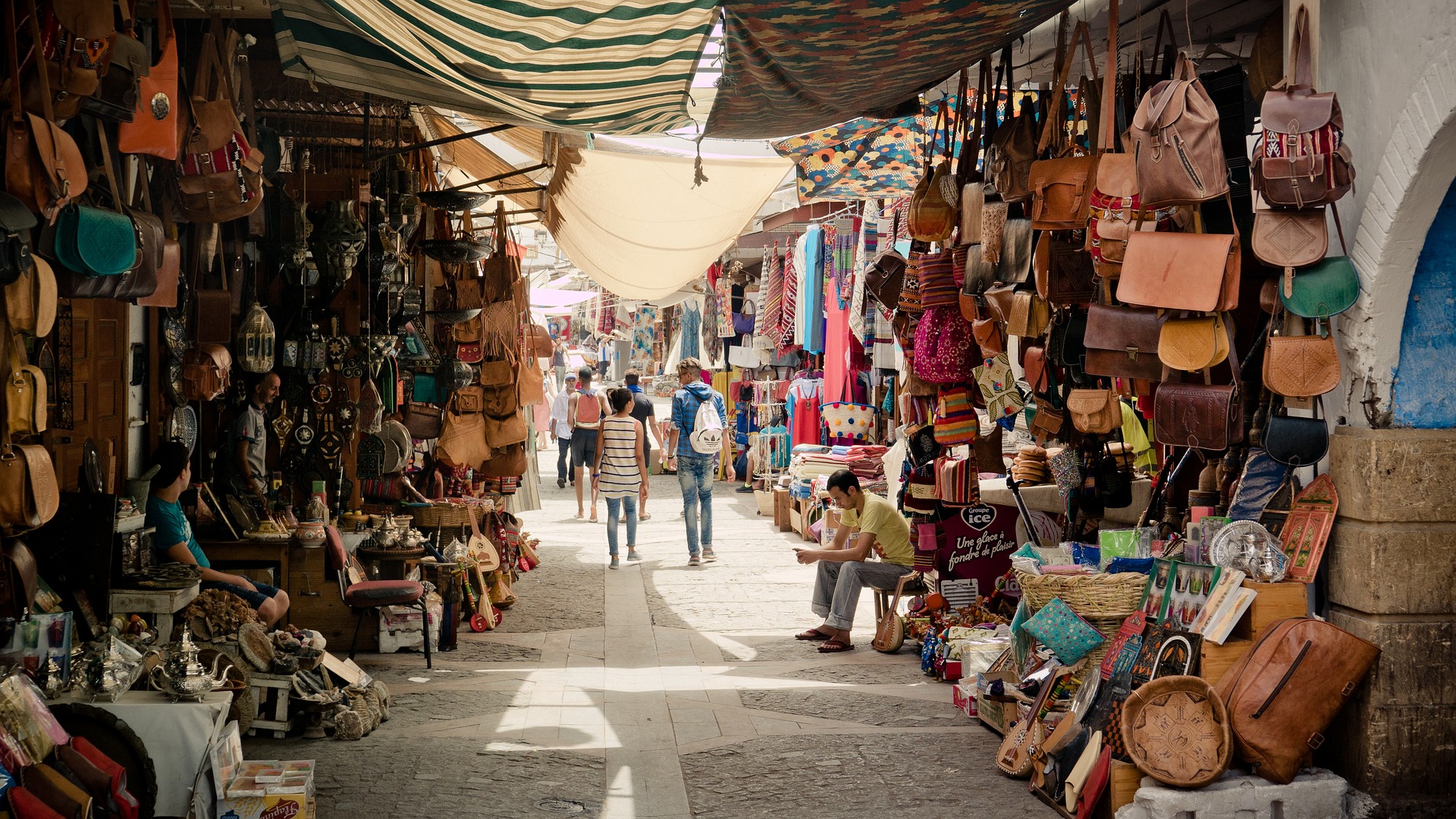
table of contents
Africa: The "final frontier"
Have you ever heard the term "The Final Frontier"? This is a commonly used term to refer to the African continent, which is expected to experience rapid growth in the future due to its vast land area, large working-age population, and abundant natural resources.
Currently, China, Russia, and the United States are keeping an eye on Africa as an investment destination, and recently many companies from Japan have also begun to enter the market. This time, we have summarized the actual trade situation in Africa! If you are considering expanding into Africa, be sure to check it out.
Current status of trade with Africa
According to Japan's Ministry of Finance trade statistics, Japan's trade with Africa in 2021 saw total exports of $9.56475 billion, up 20.9% from the previous year.
Specifically, first place was ships (24.9% of the total, up 13.2% from the previous year), second place was passenger cars (15.7%, up 31.5%), and second place was freight cars (10.6%, up 35.4%). Buses (4.4%, up 23.5%) and auto parts (4.2%, up 47.1%) also saw large increases, showing that vehicles make up a large proportion of the total.In addition, hot-rolled steel sheets (6.0%, up 41.4%),Another key point is that construction machinery (3.4%, 91.4% increase) also significantly exceeded the previous year.
Also, according to public data from the Global Knowledge Partnership (KNOMAD), remittances to Africa in 2021 reached a record high of $94.98 billion, up 12.9% from the previous year. The outlook for financial technology and alternative finance in Africa is very positive. According to a 2022 UNCTAD study, investments by financial technology companies in Africa soared to over $2 billion in 2021, a 200% increase from 2020.
Other best-selling products in Africa
In addition to the above, products in the following categories are also selling well:
Smartphone
In Kenya, as of 2019, approximately 44% of the population owned a smartphone, and this number is expected to increase by another 4 million by 2023. It is noteworthy that the Kenya Ministry of Internal Affairs and Communications predicts that consumer spending on telephone devices will more than double by 2033.
Some believe that the smartphone market, which has been focused on price up until now, will change to one that emphasizes quality and performance in the future. There may be people who prefer high-quality Japanese products to cheap Chinese products.
Baby Products
Africa has a high youth population of under 20 years old, accounting for approximately 50%, and is expected to account for a quarter of the world's population by 2050.
In Nigeria, the market is expanding due to increased purchasing power from women entering the workforce, as well as the spread of mobile money and e-commerce, which has made it possible to attract rural women. The birth rate is also significantly higher than the global average, and expectations are high for the baby and children's products market to expand. As of 2016, Nigeria had the highest number of births in Africa, at 7.16 million, and although it is a low-income country, it is promising due to the large number of infants. It is said that 23% of consumers are middle-class or above, which is assumed to be the main target of Japanese products.
In Africa, even outside of Nigeria, there are many families who treat their children like treasures, and adults will not hesitate to spend money on their children, even if it means refraining from doing so. Therefore, there is a tendency for them to continue using products of better quality and their favorite brands, and there seems to be a great opportunity if product development and brand strategies that meet their needs can be developed.
Customs situation in Africa
The percentage of total exports within Africa is very low, about one-quarter of intra-regional trade in Europe and Asia, and about half of that in North America. The reason for this low percentage is the high tariffs and customs issues within Africa. With the exception of agricultural fertilizers, many African countries impose high tariffs of 201 TP3T or more.
However, cross-border transportation to landlocked countries has also been centralized through the One Stop Border Post that JICA has been running since 2014. For example, the time required for customs clearance at the border between Tanzania and Rwanda has been reduced by one-third.
Additionally, African countries are also moving towards a "single window" system, which refers to one-stop service for import/export and port-related procedures.For example, in Nigeria, where imports from Japan amount to 30.5 billion yen, the Nigeria Single Window Trade Portal is currently up and running. This is an inter-ministerial website that provides access to all agencies involved in trade, both domestic and international, and provides information on tariff rates, etc.
As such, although tariffs in Africa are high, some countries are seeing improvements thanks to efforts such as system unification.
Notes for each item
Please note that when trading with African countries, separate permits and inspections may be required. Some countries imposed some restrictions on the import of Japanese food for several years after the nuclear power plant accident during the Great East Japan Earthquake, but in recent years these restrictions have been lifted. Mauritius lifted the restrictions in 2016, the Democratic Republic of the Congo in 2019, and Egypt and Morocco in 2022.
In addition, some items require a license; for example, in Kenya, products subject to the Convention on International Trade in Endangered Species of Wildlife (CITES) cannot be exported to the country without a license issued by the Kenya Wildlife Service (KWS).
Since imported ready-made products vary from country to country, be sure to check carefully when exporting from Japan.
Accurately Understanding Africa and Preparing for Expansion
This time, we have summarized basic information about Africa, the "final frontier," including exports and tariffs. In order to succeed in African trade, where high demand is expected in the future, it is important to keep an eye on the latest information in addition to the data introduced here.
category:African export business
Related articles
-

Basic information on Moroccan trade and exports (overview and basic statistics)
-

Basic information on Algerian trade and exports (overview and basic statistics)
-

Basic information on trade and exports in Côte d'Ivoire (overview and basic statistics)
-

Basic information on Ethiopian trade and exports (overview and basic statistics)
-

Basic information on Ghana's trade and exports (overview and basic statistics)
-

Business opportunities in Africa! Advantages and disadvantages of expanding into Africa